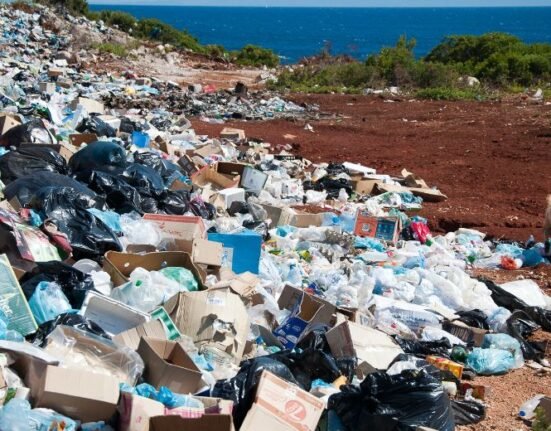HQ Team
November 8, 2022: Teflon-coated nonstick pans are common in many kitchens. Teflon is not a product but a brand name of a product. It refers to a chemical coating known as polytetrafluoroethylene (PTFE). It also contains a chemical called perfluorooctanoic acid (Known as PFOA or C8, for short). PFOA was used in Teflon products until 2013.
There have always been concerns over the use of non-stick cookware and the health risks involved therein. These concerns led to the removal of a harmful chemical from the manufacturing process in 2013. But the risks associated with using Teflon-coated materials are real. Another recent study says that overwashed and scratched Teflon surfaces can release micro plastics that are harmful to humans.
Teflon chemicals and associated health risks
Earlier manufacturers claimed that the PFOA or C8 supposedly burns off during the manufacturing stage, but research has found trace amounts of PFOA remain on the cookware. According to a large body of research, C8 disrupts normal hormone function and lowers testosterone levels in men. It has also been linked to various cancers and birth defects. What is most worrying is that the chemical is a forever chemical and stays in the environment for long. The chemical was once so widespread in the United States that a 1999 study found that upwards of 98% of all people had PFOA in their bloodstream.
There were widespread concerns against the use of this chemical in the coating, and regulation forced all manufacturers of Teflon coating to eliminate PFOA. PTFE is an inert chemical and does not react within the body or outside. Hence, Teflon coating after 2013 is considered relatively safe. But problem arises when pans containing Teflon are heated at temperatures above 570 degrees Fahrenheit. At this temperature, Teflon coating begins to break down, releasing toxic chemicals into the air and environment.
Microplastics in cracked Teflon
A new study says that non-stick pots and pans covered with Teflon that have lost their coating due to wear and washing could be harmful. The broken coating can release microplastics and nanoplastics into our food while cooking
The study found surface cracks could leave behind approximately 9100 plastic particles.
The new research looks at microplastics (smaller than 5 millimeters or 0.2 inches) and nanoplastics (millions of times smaller still. “It gives us a strong warning that we must be careful about selecting and using cooking utensils to avoid food contamination,” says Youhong Tang, a mechanical and material engineer from Flinders University in Australia.
The team used the Raman imaging technique to study the microplastics and nanoplastics on a Teflon coating at a molecular level via photon scattering. They also used algorithms to calculate how much of this coating might come unstuck and find its way into food.
Cooking with broken Teflon-coated material and using different types of turners (stainless steel, wooden, etc), the researchers simulated the cooking process for a set amount of time. In 30 seconds, a broken coating could cause as many as 2.3 million tiny particles to be released during meal preparation.
“Given the fact PFAS is a big concern, these Teflon microparticles in our food might be a health concern,” says Cheng Fang, a materials scientist at the University of Newcastle in Australia.
The researchers are calling for further investigation into the possible contamination effects from these nanoparticles and microplastics during cooking.
The research team acknowledges the difficulty in measuring and assessing plastic particles at these microscopic sizes. This area could potentially be improved in the future.
“More research is recommended to address the risk assessment of the Teflon microplastics and nanoplastics, given that Teflon is a family member of PFAS,” says Tang.
The study was funded by CRC CARE and the University of Newcastle and used data supplied by Flinders Microscopy and Microanalysis (FMMA) in conjunction with the Flinders Institute for Nanoscale Science and technology.



